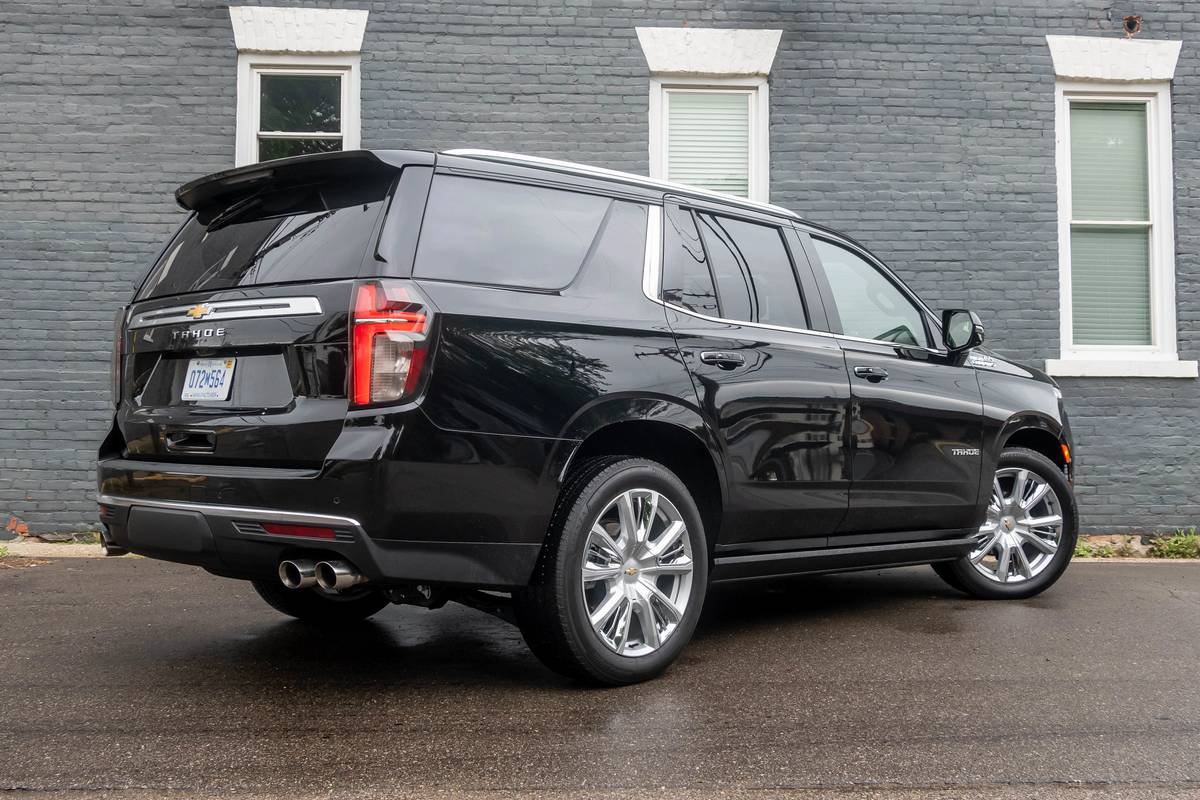Microchip Shortage: GM Selling V-8 Full-Size Trucks and SUVs Without Automatic Stop-Start


In an effort to mitigate vehicle supply shortages caused by the ongoing global microchip shortage, GM is manufacturing certain full-size pickup trucks and SUVs without a fuel-saving automatic stop-start feature.
- ${price_badge()}
- ${ami_badge()}
- ${battery_badge()}${ev_report_link()}
- ${hot_car_badge()}
- ${award_badge()}
- ${cpo_badge()}
${price_badge_description}
${ami_badge_description}
The EV Battery Rating is based on this vehicle's current expected range relative to the vehicles expected range when new. ${battery_badge_text}
Certified cars are manufacturer warrantied and typically go through a rigorous multi-point inspection.
This car is likely to sell soon based on the price, features, and condition.
${award_blurb}
${award_two_blurb}
Shop the 2021 Chevrolet Tahoe near you


The automaker told Cars.com that the deletion of this feature will apply to the following vehicles manufactured on or after June 7, powered by either a 5.3-liter or 6.2-liter V-8 engine paired to a 10-speed automatic transmission:
- Cadillac Escalade, Escalade ESV
- Chevrolet Silverado 1500
- Chevrolet Tahoe, Suburban
- GMC Sierra 1500
- GMC Yukon, Yukon XL
According to a GM spokesperson, the feature cannot be added post-production.
“By taking this measure, it will enable us to continue production of our high-demand full-size SUV and pickups as the industry continues to rebound and strengthen,” GM said in a statement. “Most of the affected vehicles will experience a minor reduction in fuel economy and customers will receive a $50 credit on the MSRP for affected vehicles.”
In these configurations, none of the affected vehicles offered stellar fuel economy to begin with, so a small reduction in city fuel economy (where auto stop-start is a factor) could have a more outsized impact to fuel economy.
At the same time, buyers interested in these vehicles may not be too concerned about fuel economy and shrug off a decrease. Some consumers also find such idle-stop systems annoying and deactivate them, negating any potential fuel economy benefit.
According to the EPA, fuel economy estimates for the affected 2021 models with and without the stop-start function are available on FuelEconomy.gov, and consumers can compare fuel economy ratings if they’re concerned about the impact. For example, in the case of the 2021 Chevrolet Tahoe with four-wheel drive and the 6.2-liter V-8, city fuel economy dropped from 14 to 13 mpg, but the combined mpg rating of 16 does not change. The 2021 Chevrolet Silverado 1500 with 4WD and the 6.2-liter saw no published change. It’s also worth noting that these are rounded mpg figures, and a 1-mpg difference (or lack thereof) may not be an actual change of a whole mile per gallon in real-world driving.
As of now, the change has not impacted diesel versions of the above vehicles, nor does it affect Chevrolet Silverado 1500 or GMC Sierra 1500 models that use other drivetrains.
How long this change lasts is also unclear as of now.
“Our supply chain organization continues to make strides working with our supply base to mitigate the near-term impacts of the semiconductor situation,” the automaker said. “GM continues to leverage every available semiconductor to build and ship our most popular and in-demand products, including our highly profitable full-size trucks and SUVs for our customers. However, the semiconductor situation continues to remain fluid globally.”
More From Cars.com:
- Global Microchip Shortage Makes Now the Time to Shop for Cars
- 2021 Chevrolet Tahoe Review: A Different-Flavored Ford Expedition Fighter
- 2021 Chevrolet Suburban Review: Grown for Grown-Ups
- 2021 Cadillac Escalade Review: Expensive, and Worth It
- 2021 Chevrolet Silverado 1500 Review: Few Wows but Plenty of Good
Editor’s note: This article was updated June 14, 2021, to include information from the EPA about the availability of fuel economy ratings for the affected vehicles.
Related Video: Chevrolet Tahoe and Suburban Review
Cars.com’s Editorial department is your source for automotive news and reviews. In line with Cars.com’s long-standing ethics policy, editors and reviewers don’t accept gifts or free trips from automakers. The Editorial department is independent of Cars.com’s advertising, sales and sponsored content departments.

Road Test Editor Brian Normile joined the automotive industry and Cars.com in 2013, and he became part of the Editorial staff in 2014. Brian spent his childhood devouring every car magazine he got his hands on — not literally, eventually — and now reviews and tests vehicles to help consumers make informed choices. Someday, Brian hopes to learn what to do with his hands when he’s reviewing a car on camera. He would daily-drive an Alfa Romeo 4C if he could.
Featured stories




